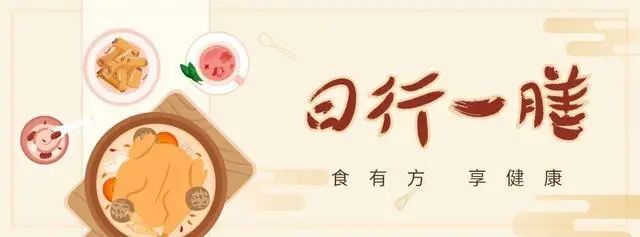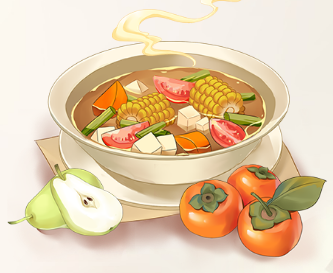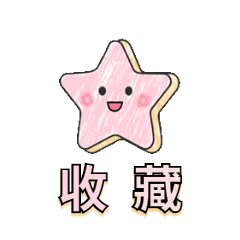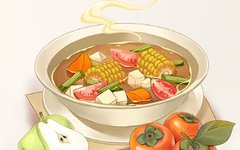
Medicinal cuisine refers to the method of using traditional Chinese medicine (TCM) herbs and ingredients for health maintenance, which has a long history in China. For modern individuals, medicinal cuisine is a rare and effective way to promote health.
The so-called “food and medicine share the same source” reflects the TCM concept that sometimes food can act as medicine, providing health benefits, while medicine can also be prepared as food, having the effects of disease prevention and treatment.

Using TCM herbs in cooking has been practiced since ancient times. Common herbs that can be used in dishes include Bai He (Lily bulb), Lian Zi (Lotus seed), Qian Shi (Foxnut), Huai Shan (Chinese yam), Fu Ling (Poria), Sha Ren (Amomum fruit), Bai Guo (Ginkgo), Chen Pi (Dried tangerine peel), Mei Gui Hua (Rose flower), Xi Yang Shen (American ginseng), He Tao (Walnut), Zhi Ma (Sesame), Yuan Rou (Longan), Gou Qi Zi (Goji berry), Da Zao (Jujube), Sang Shen (Mulberry), Bai Mao Gen (Imperata), Yi Yi Ren (Job’s tears), Dang Gui (Angelica), Ding Xiang (Clove), and Chong Cao (Cordyceps).
How to choose suitable medicinal cuisine recipes for oneself? It can be based on individual constitution and seasonal changes. According to basic TCM theory, spring focuses on regulating the liver and spleen, summer emphasizes clearing heat and relieving summer heat, autumn aims to nourish yin and moisten the lungs, and winter is suitable for warming yang and tonifying the kidneys. This seasonal variation is a major principle in selecting medicinal cuisine.

1. Spring Health Recipes
Generally, it is advisable to use herbs that tonify qi, nourish yin, and promote the smooth flow of liver qi, combined with corresponding foods. When selecting herbs, avoid those that are overly dispersive or excessively cold.
Commonly used herbs include: He Shou Wu (Fo-Ti), Bai Shao (White Peony), Gou Qi Zi (Goji berry), Chuan Xiong (Szechuan lovage), Ren Shen (Ginseng), Huang Qi (Astragalus), etc.
Accompanying foods include: Chicken (egg), Quail (egg), Lamb, Pork, Animal liver, Bamboo shoots, Wood ear mushrooms, Daylily, Shiitake mushrooms, Carp, etc.

1. He Shou Wu Liver Slices:20 ml of He Shou Wu liquid, 250 g of fresh pig liver, 20 g of wood ear mushrooms, a few leaves of green vegetables. Cut the pig liver into slices, mix with a small amount of He Shou Wu liquid, salt, and starch, then briefly fry in hot oil. Stir-fry with wood ear mushrooms, green vegetables, remaining He Shou Wu liquid, scallions, ginger, monosodium glutamate, soy sauce, etc. He Shou Wu liquid can be made by juicing fresh He Shou Wu or by decocting dried He Shou Wu into a concentrated juice.
2. Ginseng Pork Stomach Congee:3-5 g of ginseng, 100 g of sliced pig stomach, 100 g of japonica rice. First, steam the ginseng to extract its juice, then cook it with the stomach slices and rice to make congee. This dish benefits qi, strengthens the spleen, and promotes upward movement.
3. Quail Meat Slices:100 g of quail meat, 100 g of winter bamboo shoots, 5 g of button mushrooms, 15 g of cucumber, half an egg white. First, slice the quail meat and mix with egg white and starch, then stir-fry. Add winter bamboo shoots, button mushrooms, and cucumber to cook thoroughly, seasoning with cooking wine, salt, monosodium glutamate, etc. Additionally, the aforementioned qi-tonifying and yin-nourishing medicinal dishes can also be selected.
2. Summer Health Recipes
In summer (including late summer), the climate is hot and humid, which can easily damage qi and yin. Medicinal cuisine should focus on light and refreshing ingredients that tonify qi and generate fluids.
Commonly used herbs include: Xi Yang Shen (American ginseng or Tai Zi Shen, Bei Sha Shen, Sheng Shai Shen), Bian Dou (Hyacinth bean), Lian Zi (Lotus seed), Yi Ren (Job’s tears), Fu Ling (Poria), Sha Ren (Amomum fruit), etc.
Accompanying foods include: Carp, Soft-shelled turtle, Duck, Mung beans, Peanuts, Watermelon, Loofah, Winter melon, various fruits, etc.

1. Mung Bean and Pumpkin Soup:50 g of mung beans, 500 g of old pumpkin. First, boil the mung beans, then add the pumpkin and cook until the mung beans are soft.
2. Lotus Seed and Mung Bean Congee:20 g of lotus seed flesh, 50 g of mung beans, 100 g of japonica rice. Cook into congee. Alternatively, use lotus seed flesh, mung beans, and rock sugar (or white sugar) to make a soup.
3. Refreshing Herbal Tea:10 g of chrysanthemum, 10 g of honeysuckle, 15 g of hawthorn, 10 g of Mai Dong (Ophiopogon), 10 g of Shi Hu (Dendrobium), 3 g of green tea, steep to make tea.
4. Lotus Leaf Herbal Tea:Half a fresh lotus leaf, 6 g of Bai Zhu (White Atractylodes), 4 g each of Huo Xiang (Agastache), Gan Cao (Licorice), and appropriate amount of sugar. Boil the above herbs, strain, add sugar, stir well, and let cool before drinking.
5. Winter Melon Duck Stew:1000 g of winter melon, 500 g of duck meat, 30 g of Qian Shi (Foxnut), 30 g of Yi Ren (Job’s tears). First, boil the duck with Qian Shi and Yi Ren (wrapped in cloth), then add winter melon and cook until the duck is tender. This dish has the effects of strengthening the spleen, tonifying qi, nourishing yin, and promoting urination, making it an excellent summer dish.
6. Sour Plum Soup:10 g of black plum, appropriate amount of sugar (or rock sugar), steep to make tea. This has the effect of generating fluids and quenching thirst.
3. Autumn Health Recipes
In autumn, the climate is dry and cool, which can easily damage body fluids. It is advisable to use nourishing recipes that generate fluids, nourish yin, and moisten the skin.
Commonly used herbs include: Mai Dong (Ophiopogon), Sha Shen (Glehnia), Bai Shao (White Peony), Bai He (Lily bulb), Shu Di Huang (Rehmannia), Dang Gui (Angelica), Sang Shen (Mulberry), Dong Chong Xia Cao (Cordyceps), and Chrysanthemum.
Accompanying foods include: Cuttlefish, Soft-shelled turtle, Duck, Chicken, Beef, Lamb, etc.

1. Qian Shi and Peanut Soup:60 g of Qian Shi, 10 red dates, 30 g of peanuts, add appropriate amount of rock sugar, and boil into soup. This has the effect of tonifying qi and generating fluids, especially suitable for the transition from summer to autumn when the spleen and stomach are still weak.
2. Ginseng and Wheat Fish:5 g of ginseng, 20 g of floating wheat, 10 g of Fu Ling (Poria), 1 live soft-shelled turtle, 100 g of ham, 1 egg, 25 g of lard, and appropriate amounts of ginger, salt, scallions, chicken broth, and cooking wine. First, kill and cut the soft-shelled turtle, wrap floating wheat and Fu Ling in cloth, grind the ginseng into powder, and mix with ham, lard, chicken broth, and seasonings in a large bowl to steam for 2-3 hours. Strain some broth, boil with the egg, and mix with the fish to complete.
3. Sha Shen Heart and Lung Soup:15 g of Sha Shen, 15 g of Yu Zhu (Polygonatum), 25 g of scallions, 100 g each of pig heart and lung. Simmer until cooked, add salt and monosodium glutamate to taste. This has the effect of tonifying qi and moistening dryness.
4. Bird’s Nest Soup:3 g of bird’s nest, boiled into soup. This has the effects of nourishing yin, tonifying qi, and moistening dryness.
4. Winter Health Recipes
Winter is the best season for nourishment due to the cold climate, which encourages the body to store energy. It is advisable to use warming recipes that tonify kidney yang and replenish essence.

Commonly used herbs include:Rou Gui (Cinnamon), Lu Rong (Deer antler), Dong Chong Xia Cao (Cordyceps), He Tao Ren (Walnut), Tu Si Zi (Cuscuta), Rou Cong Rong (Cistanche), Shu Di Huang (Rehmannia), Shan Yao (Chinese yam), Gou Qi Zi (Goji berry), Hai Long (Sea dragon), Hai Ma (Seahorse), etc.
Accompanying foods include: Dog meat, Lamb, Beef, Chicken, Pigeon, Sparrow, Radish, Clams, Sea cucumber, etc.
1. Radish and Lamb Soup:500 g of radish, 500 g of lamb. First, boil the lamb, then add the radish and cook until tender, seasoning with ginger, scallions, pepper, salt, monosodium glutamate, etc. This has the effect of warming and nourishing qi and blood without causing stagnation. Winter medicinal cuisine is often rich and nourishing, and adding some radish can help regulate qi and clear internal heat.
2. Dang Gui and Ginger Lamb Soup, Lu Rong (Deer antler) Egg, Lamb Kidney with Quail Egg, and the aforementioned nourishing and strengthening medicinal dishes are all suitable for winter consumption, providing excellent benefits.

Provided by: Department of Orthopedics
Recommended Reading:
Like! Zhengzhou Traditional Chinese Medicine Orthopedic Hospital has been rated as an “Advanced Collective in TCM Work in Zhengzhou” for eight consecutive years!
Hospital Honor Display – We also want to be low-key, but our strength does not allow it!
Zhengzhou Traditional Chinese Medicine Orthopedic Hospital’s location and transportation routes (including route video)

